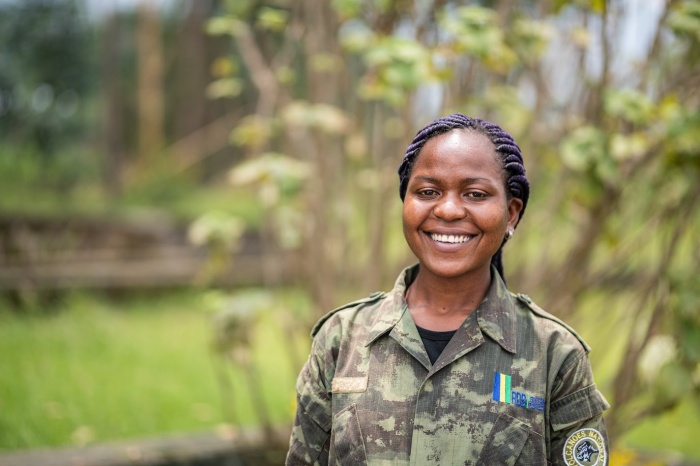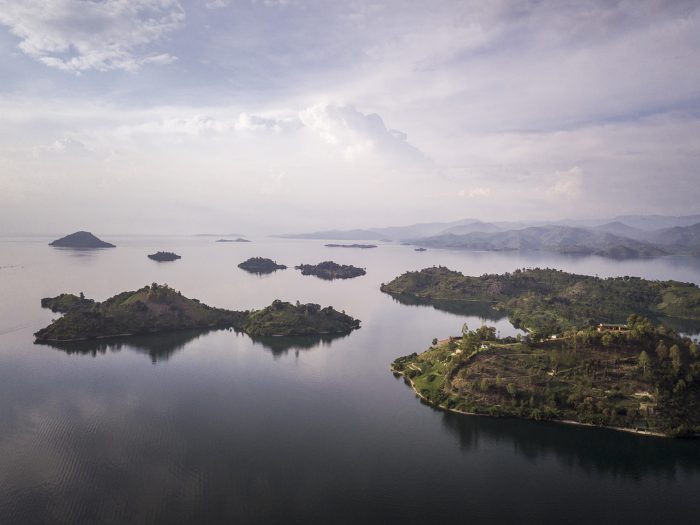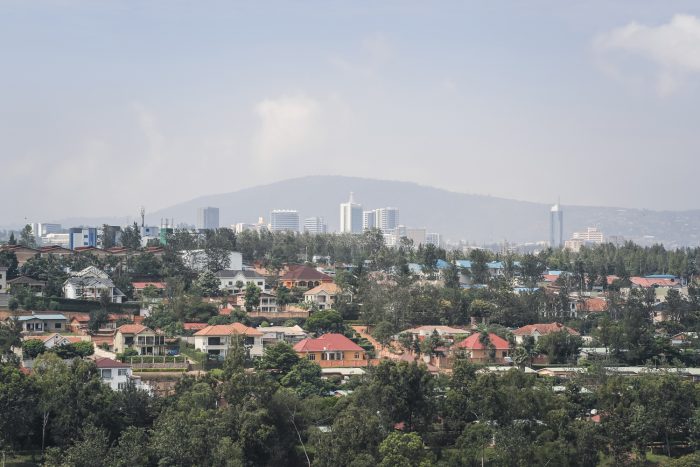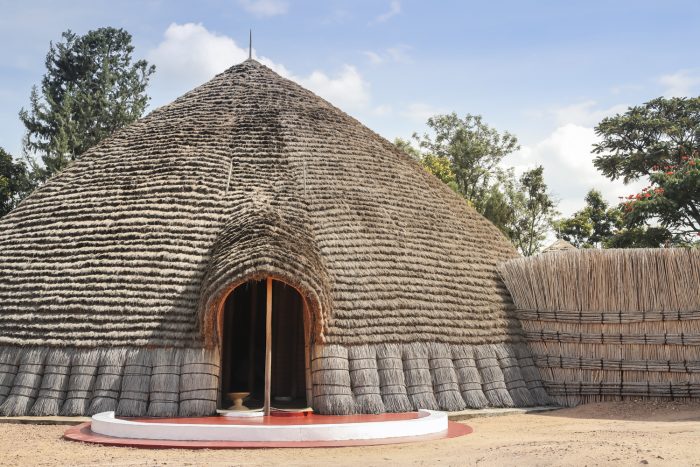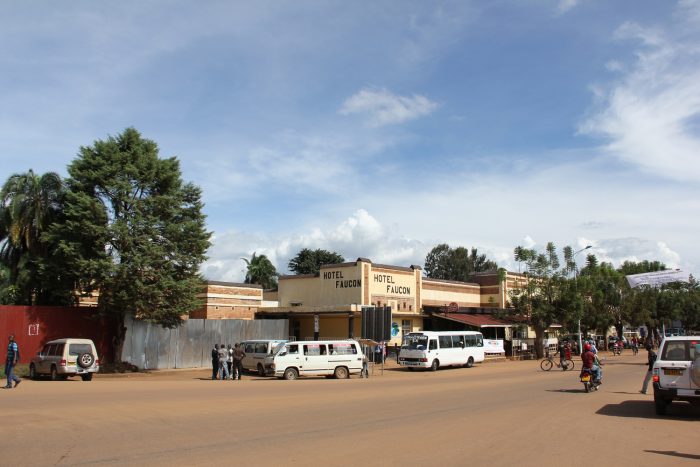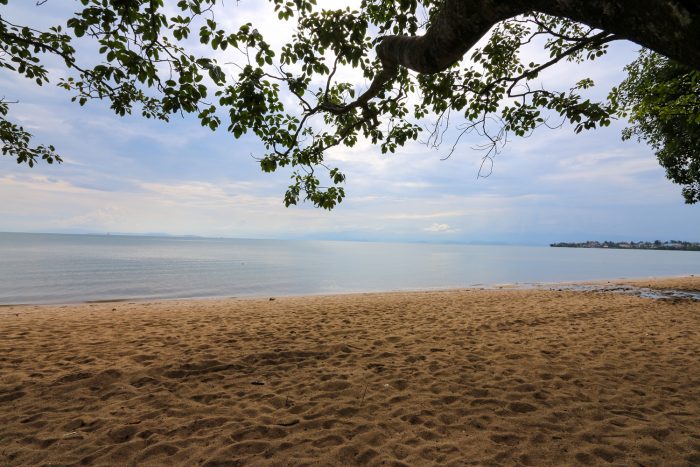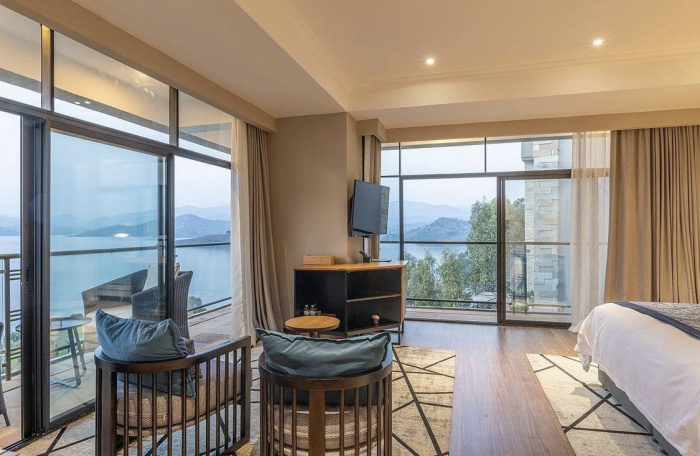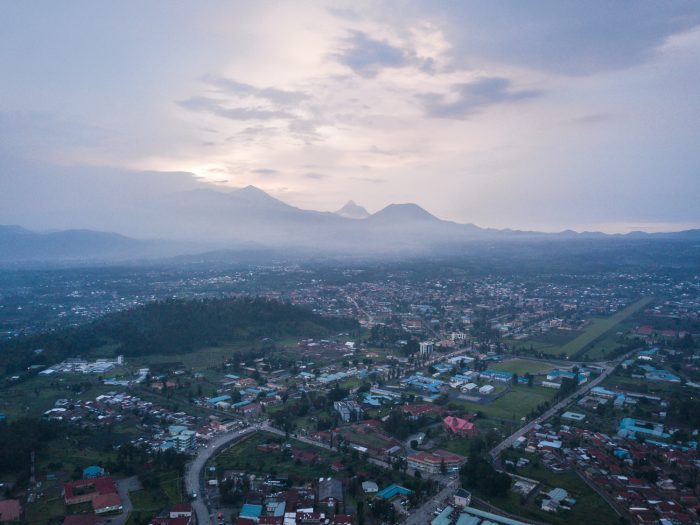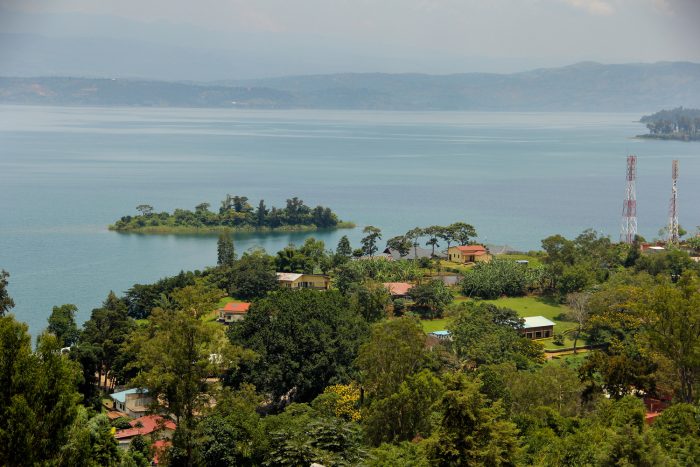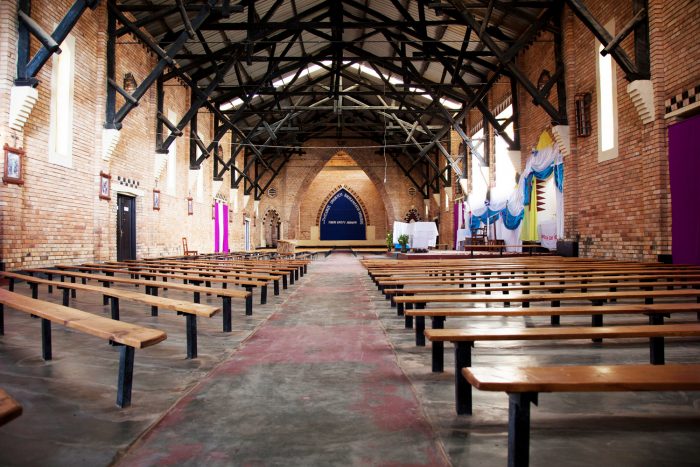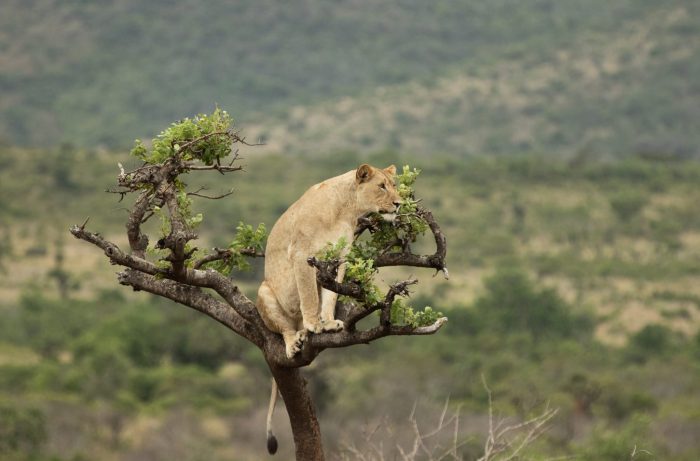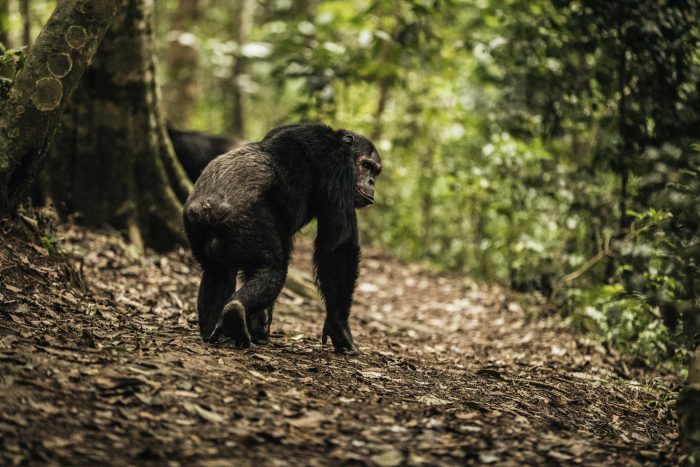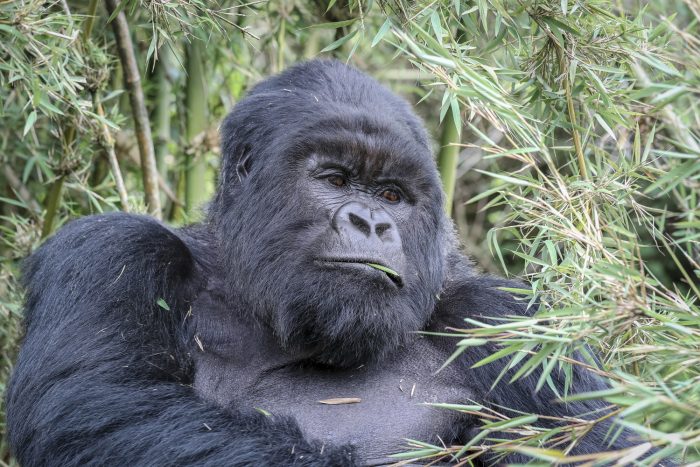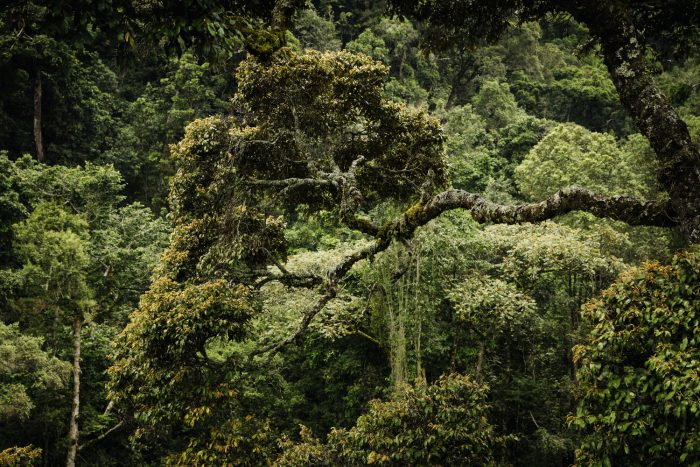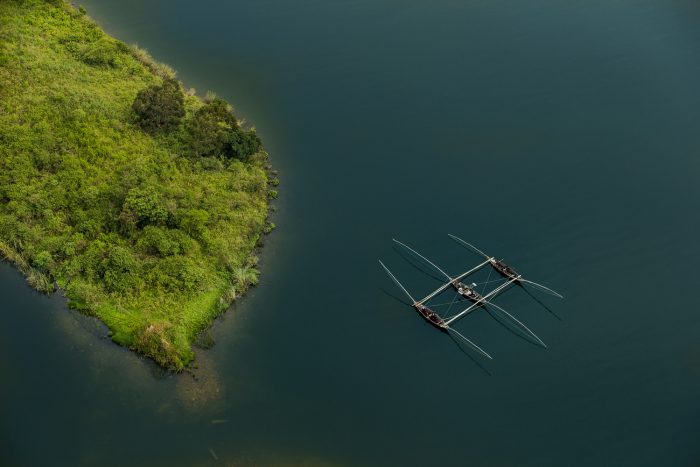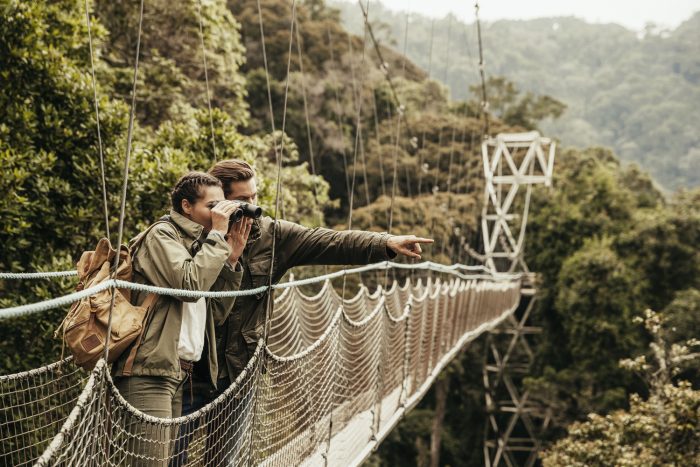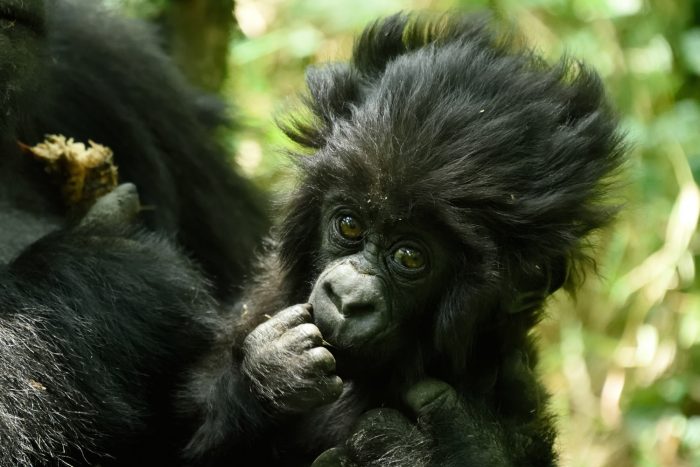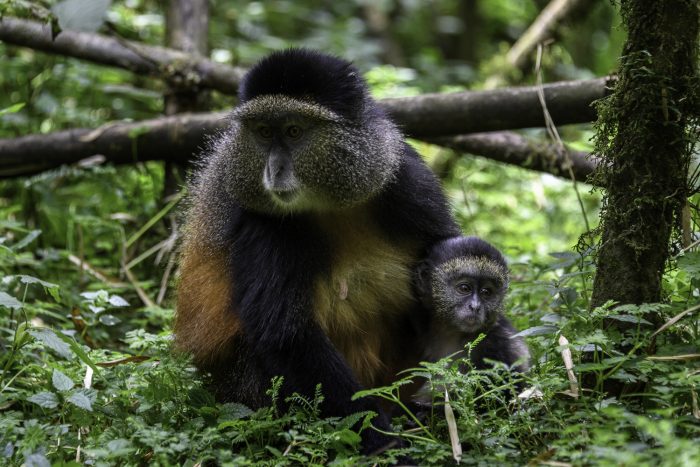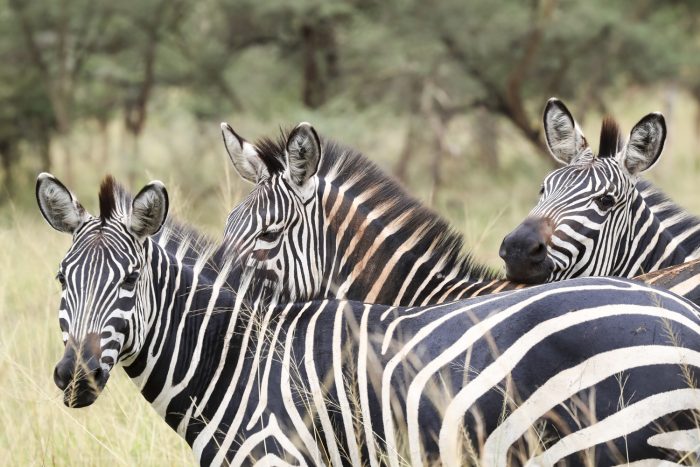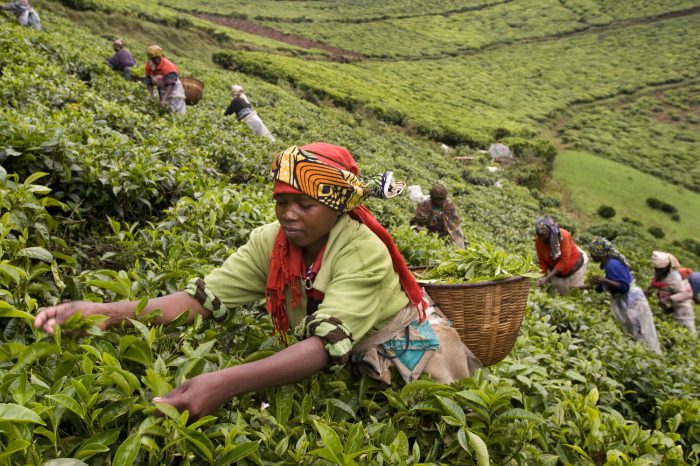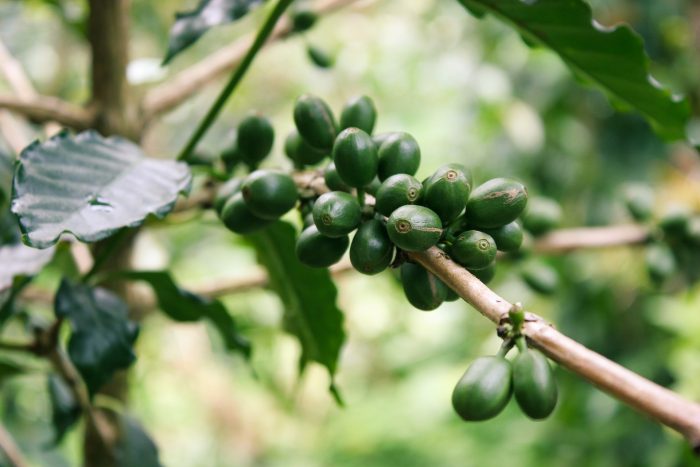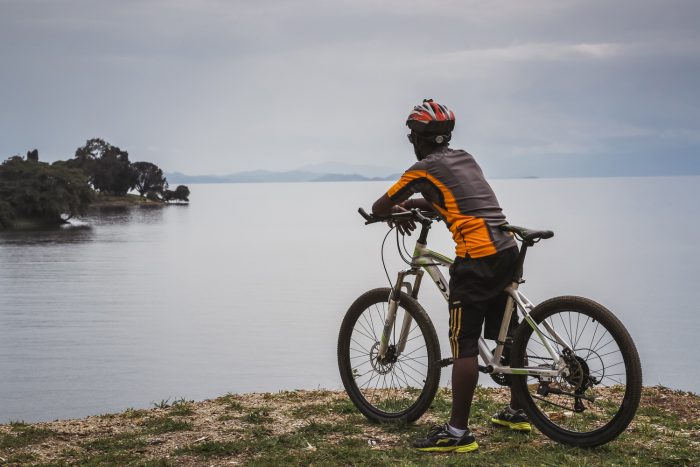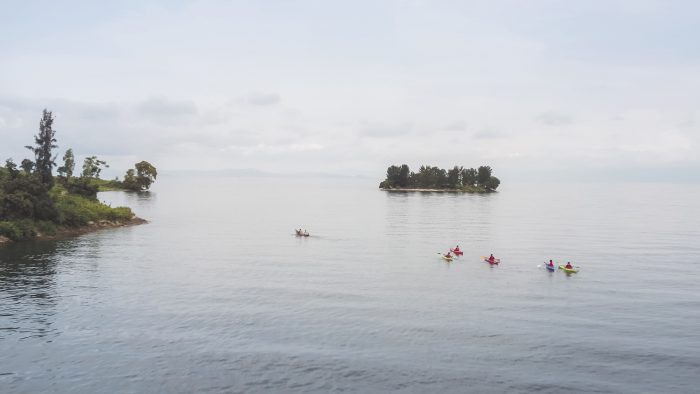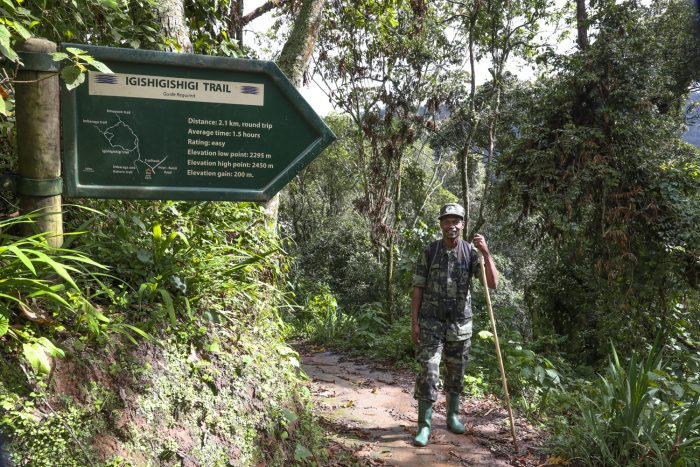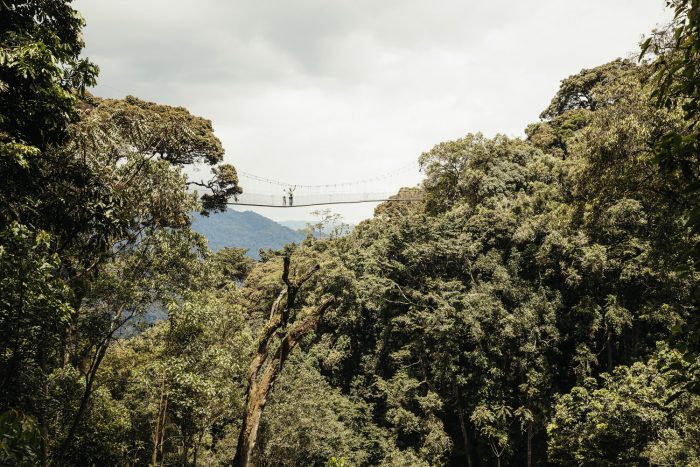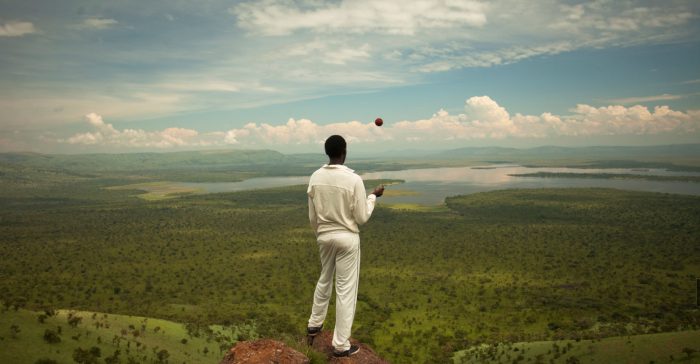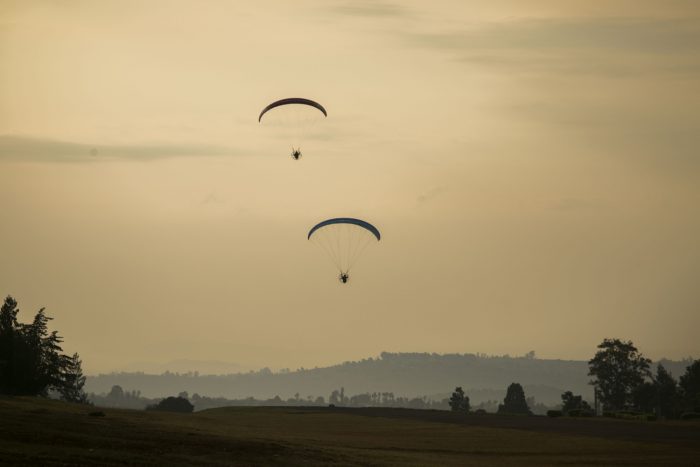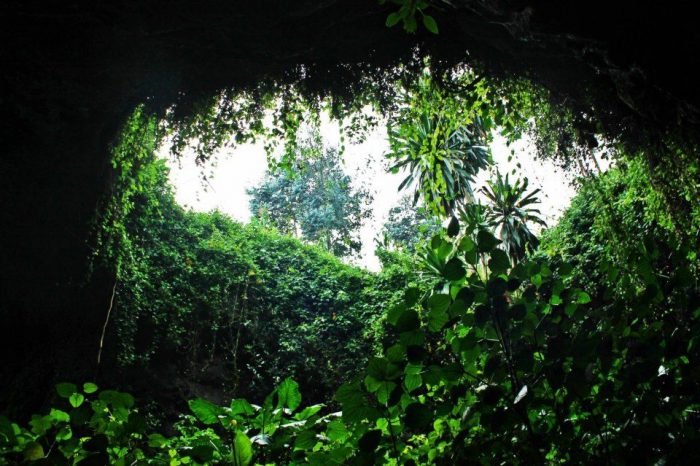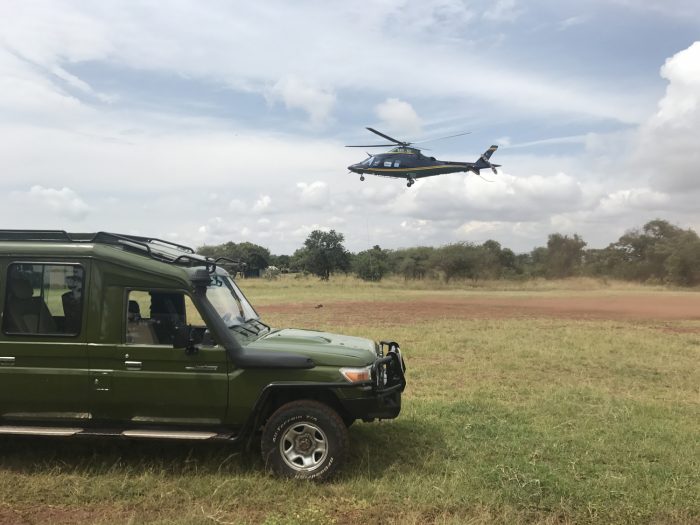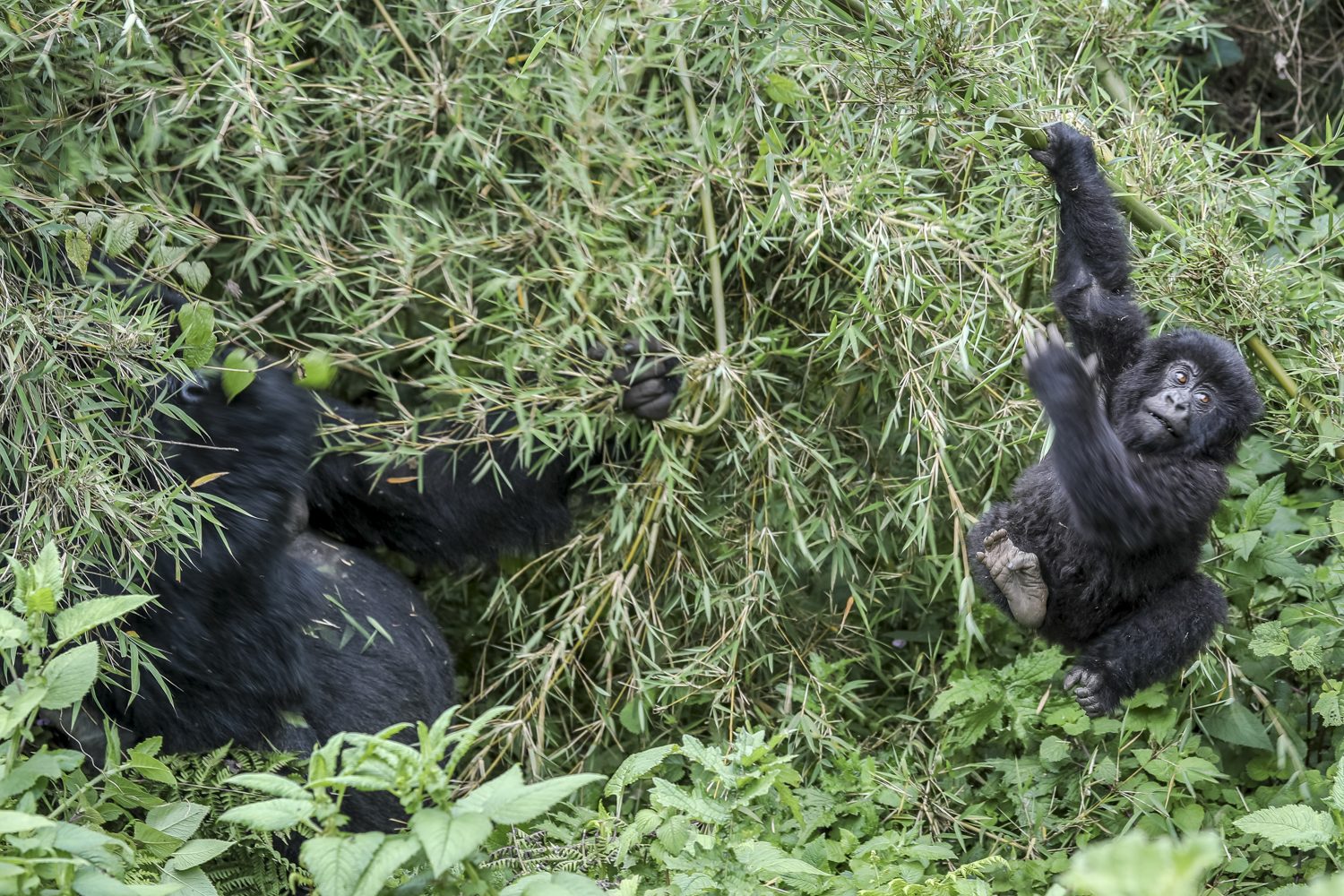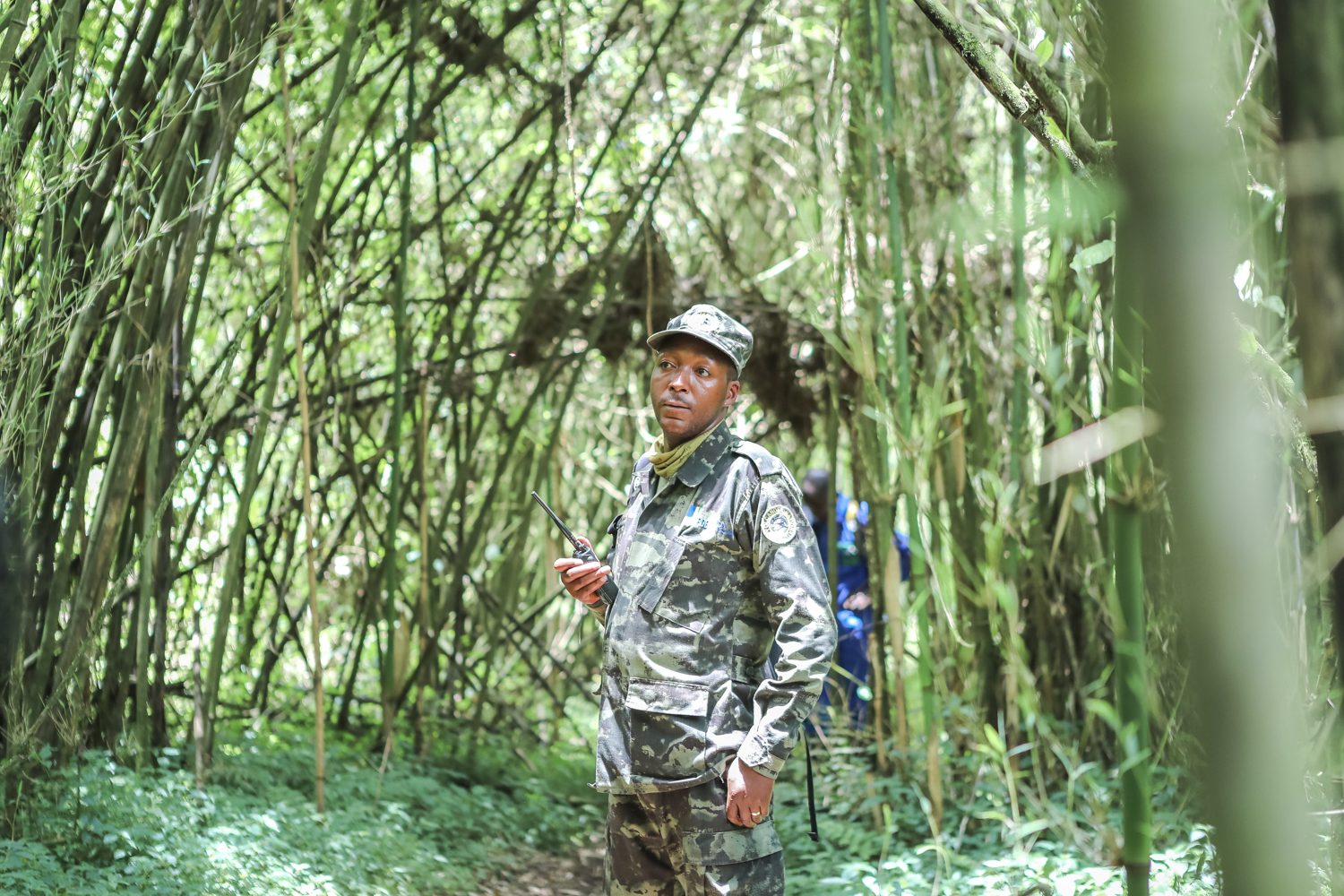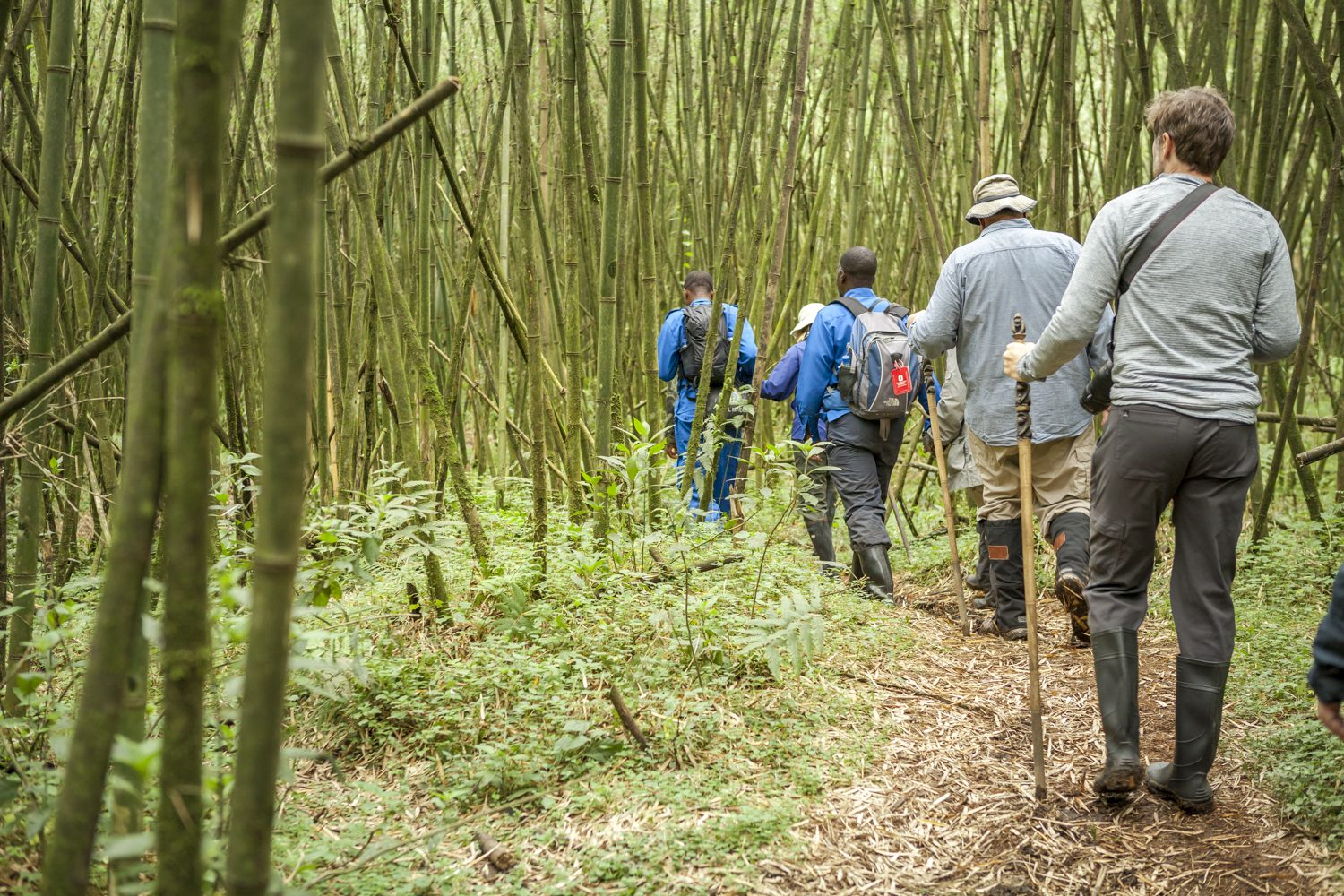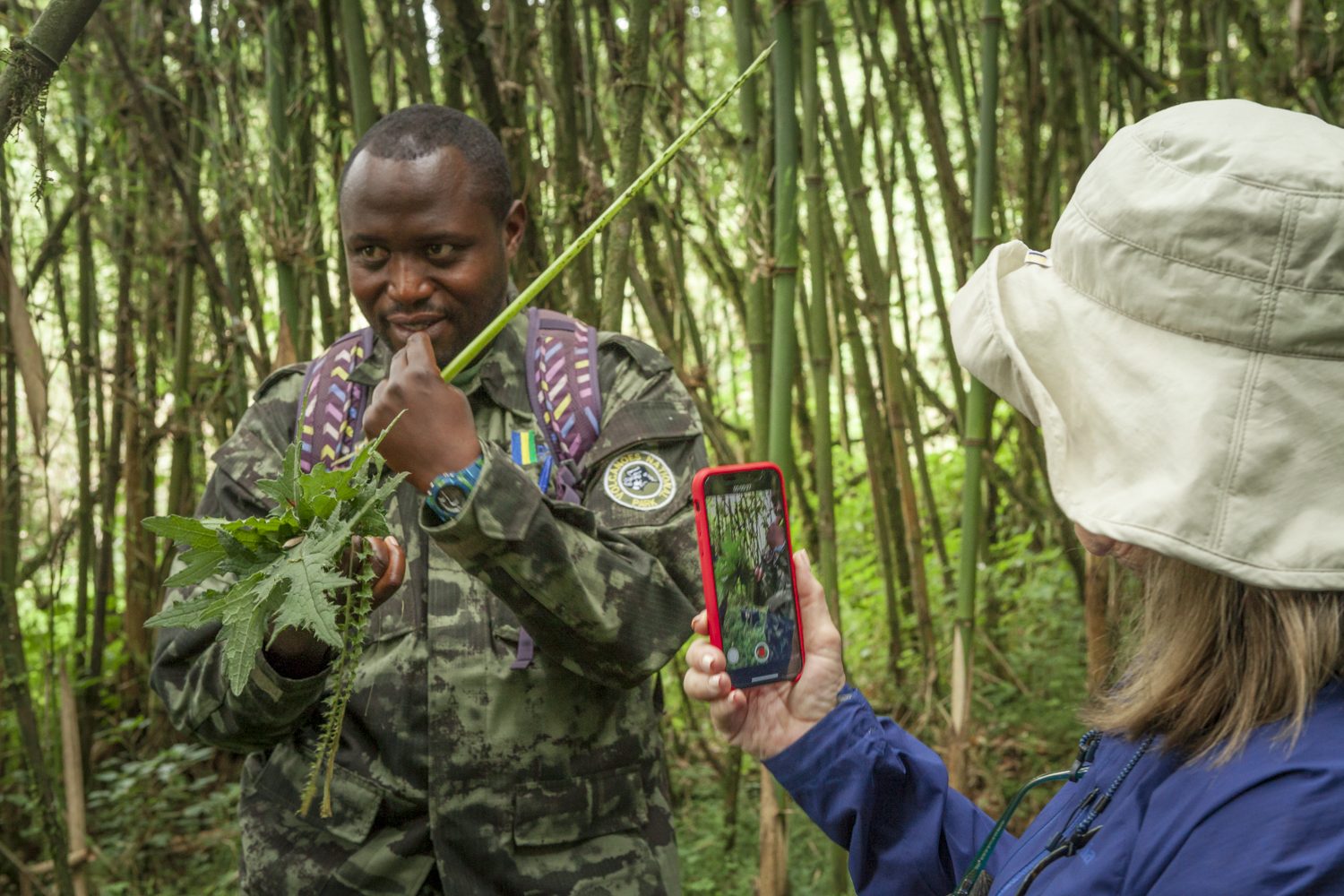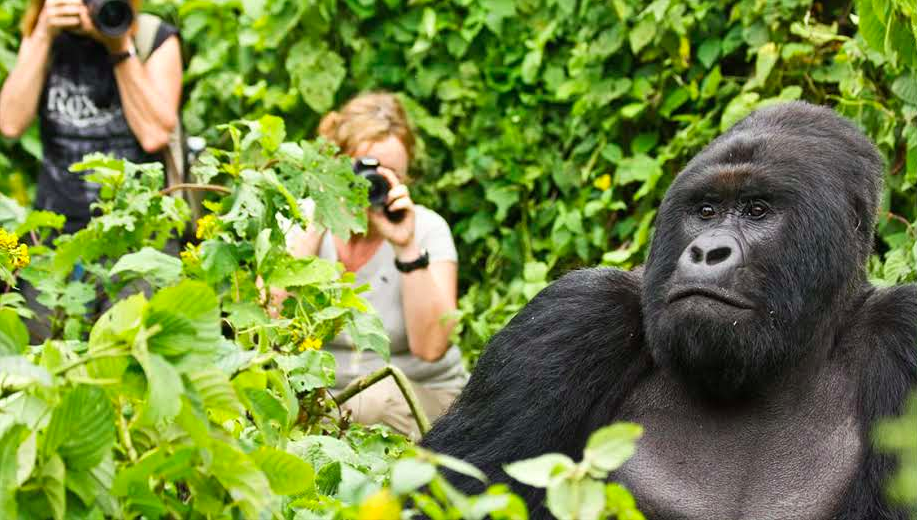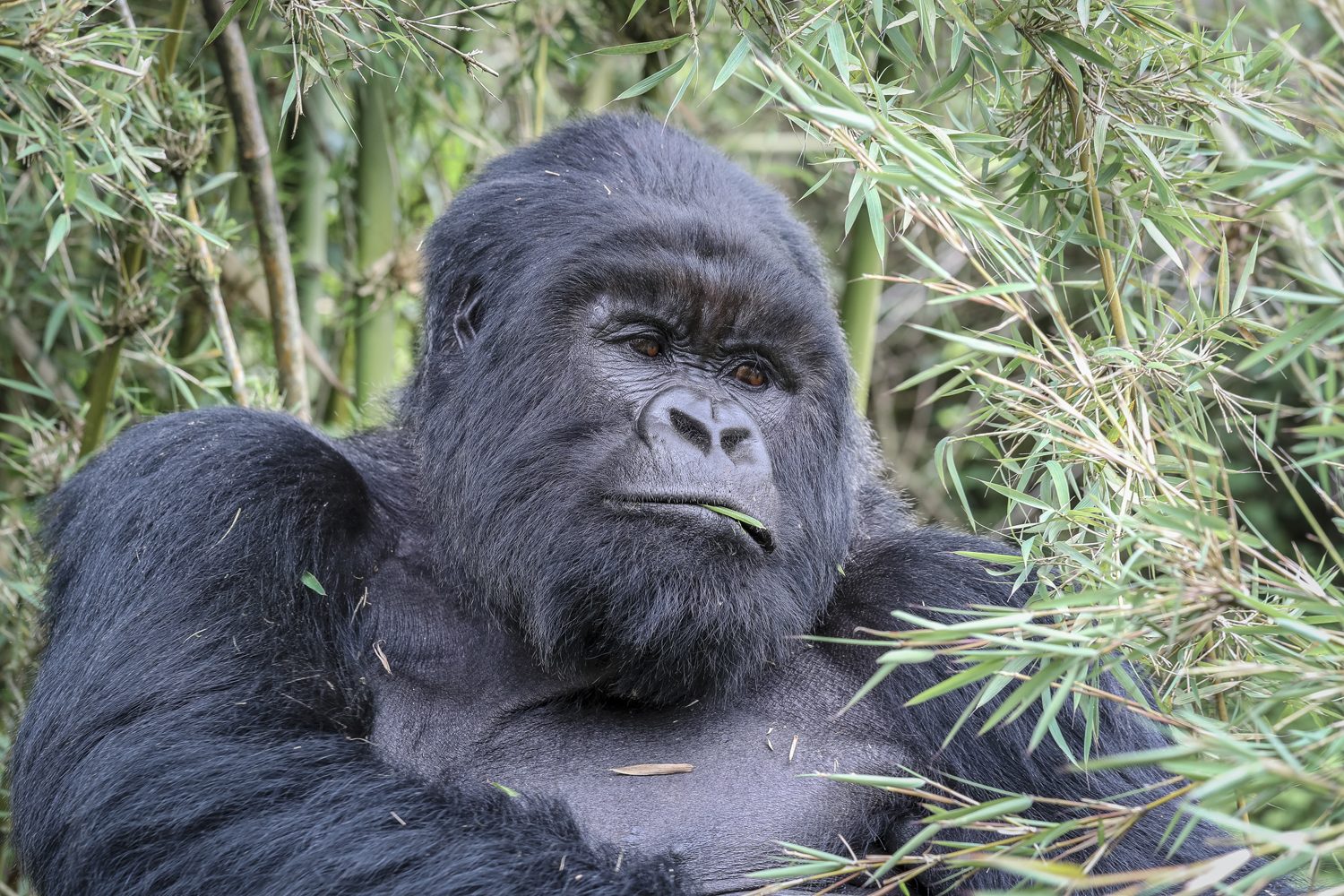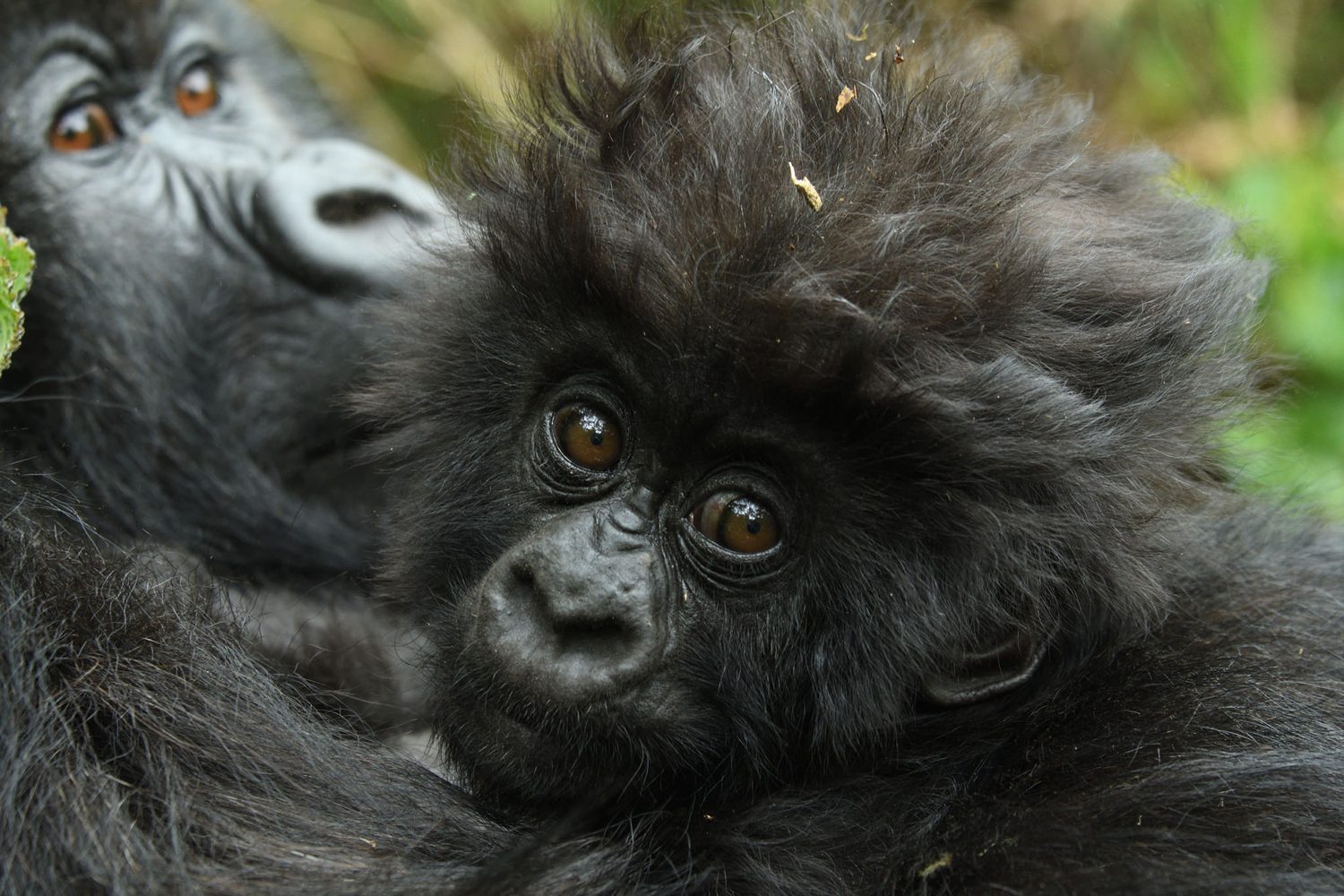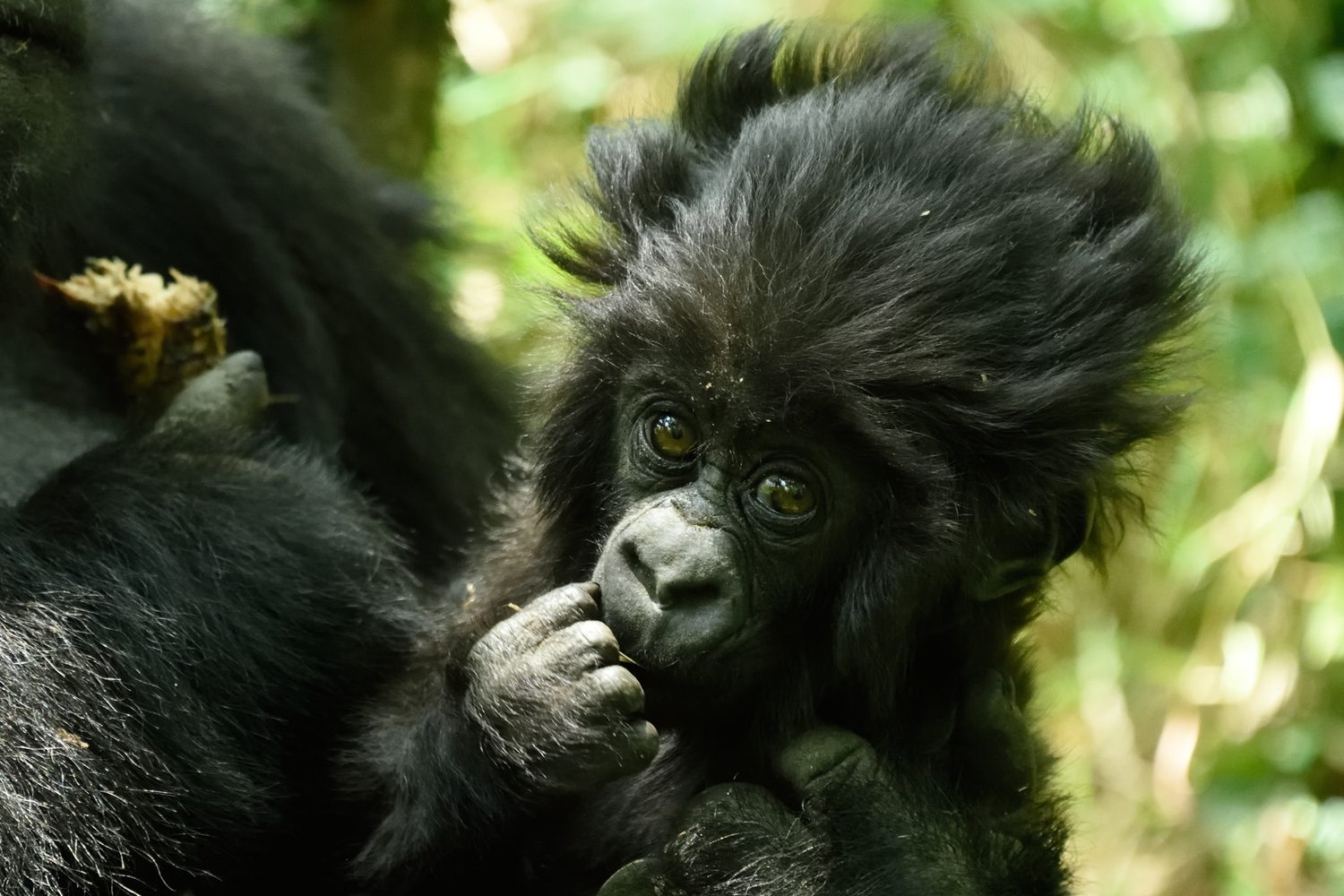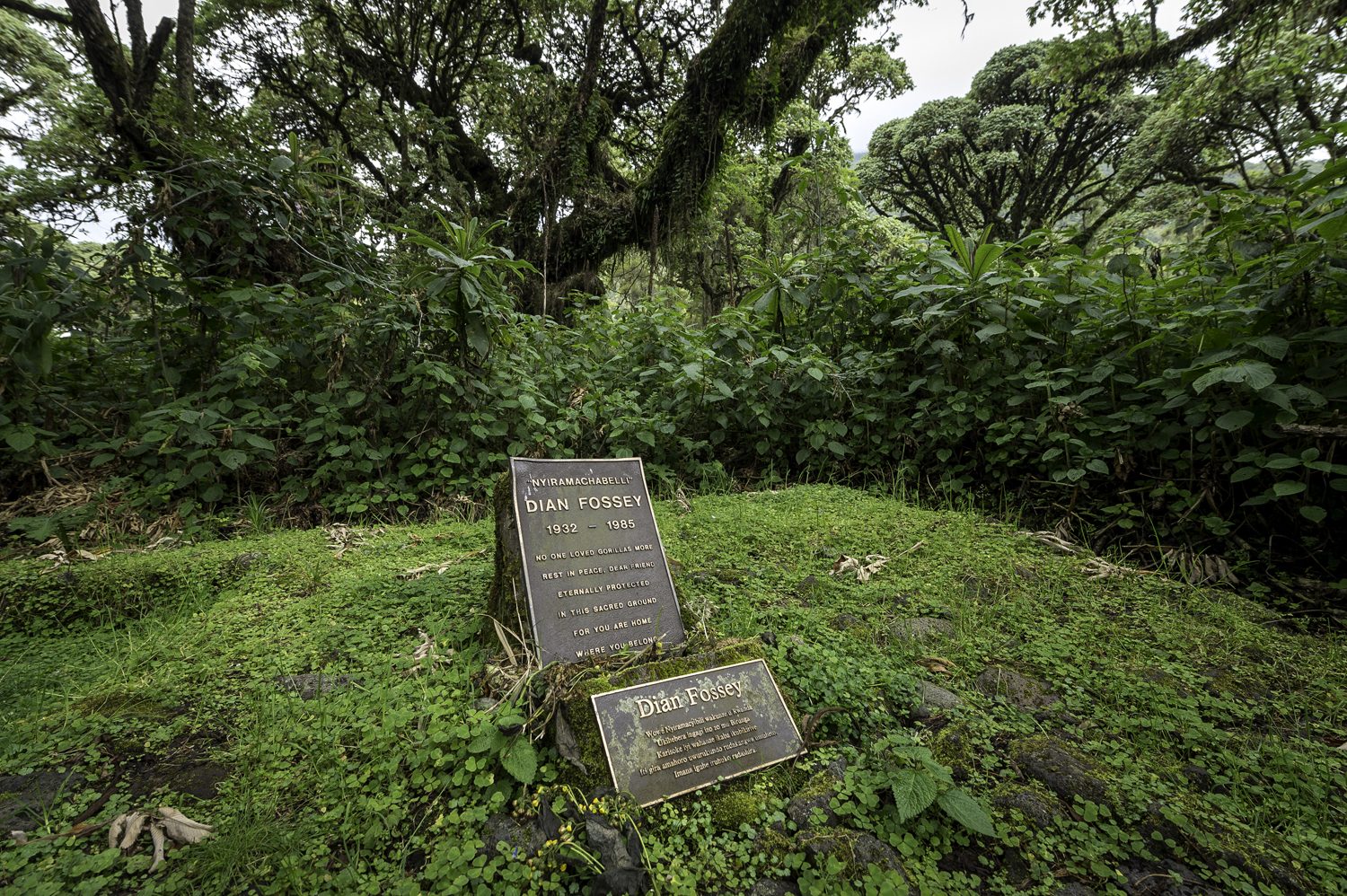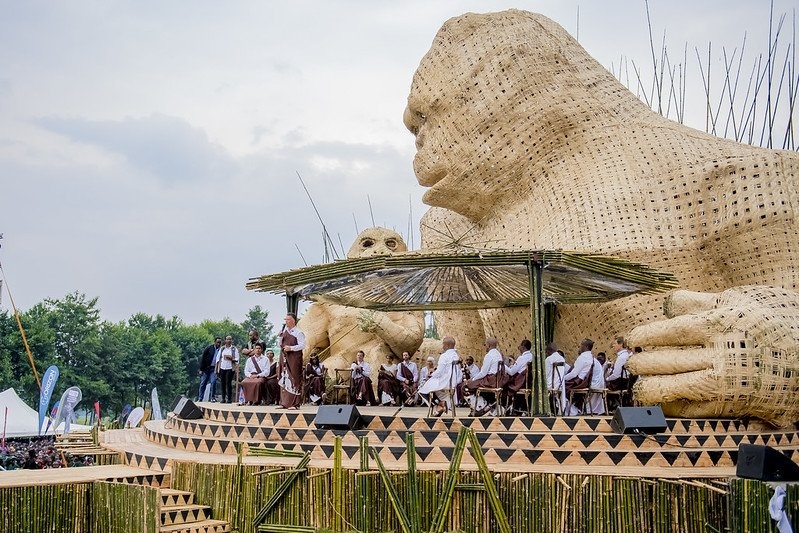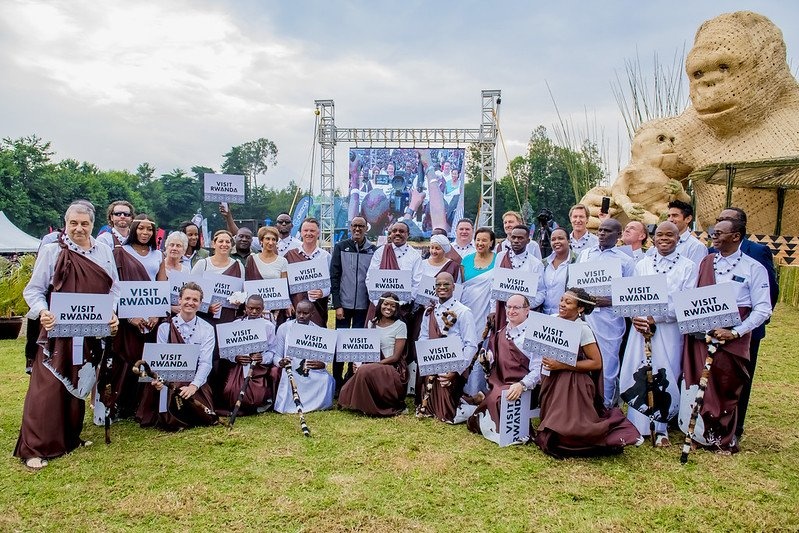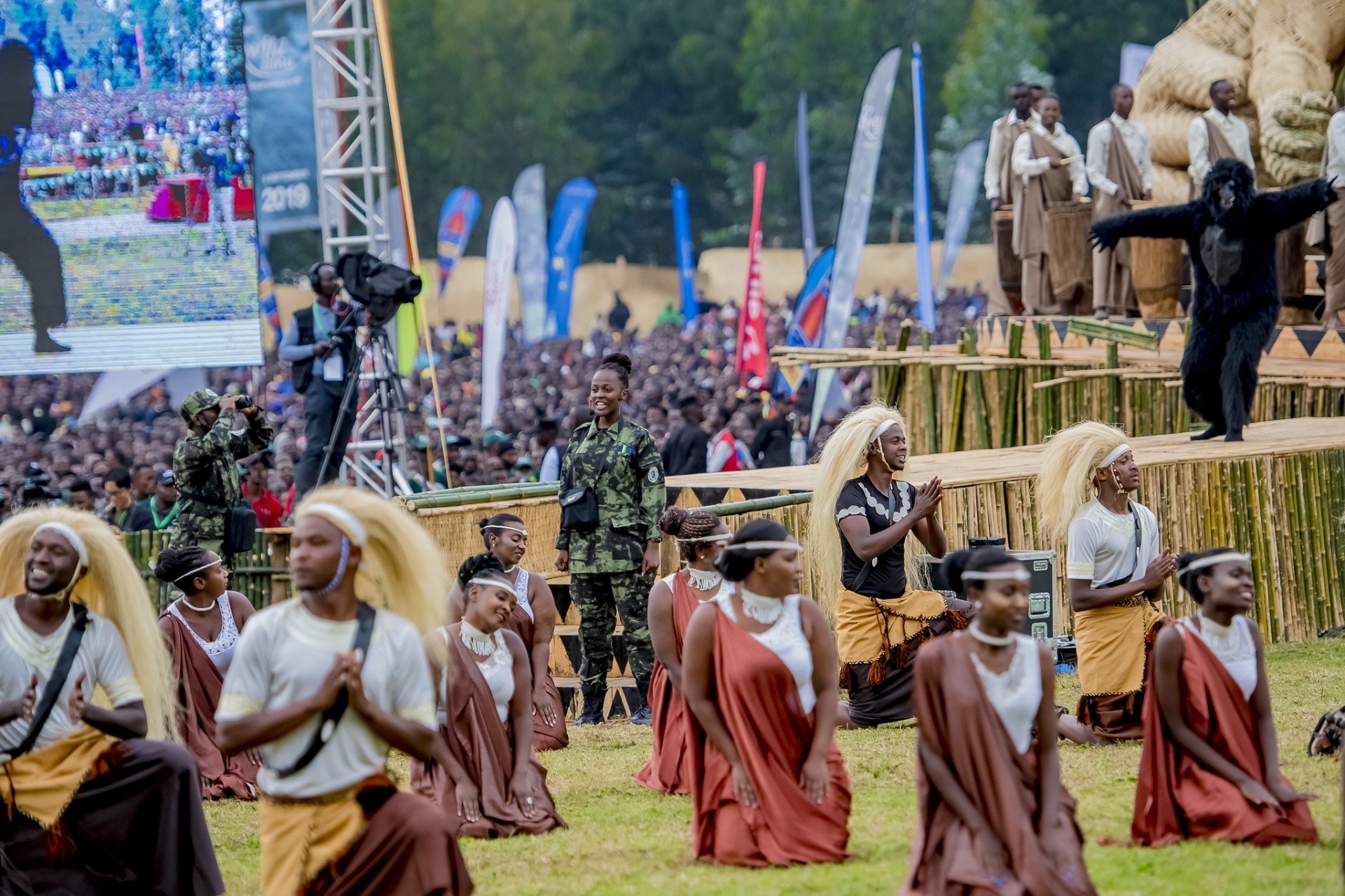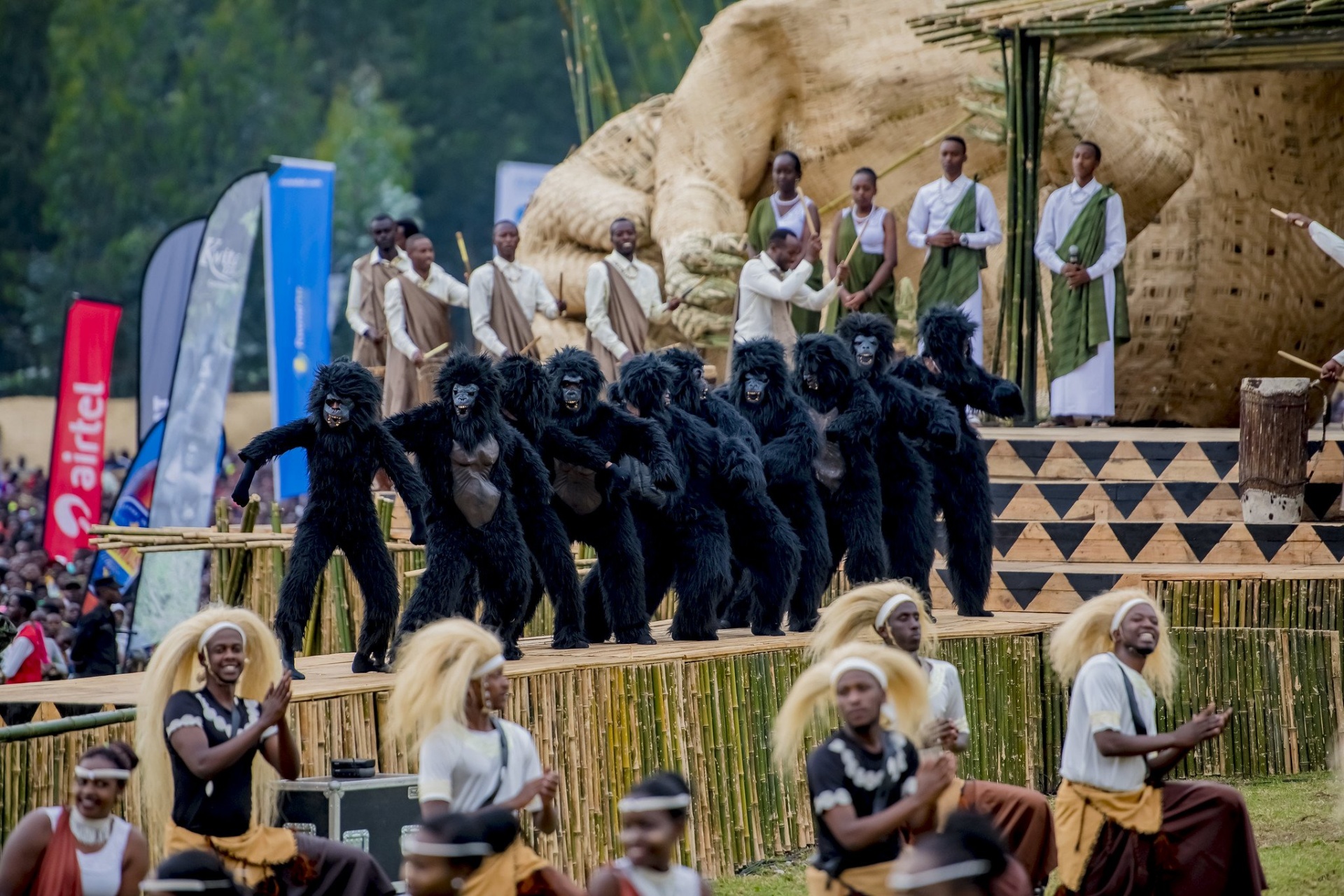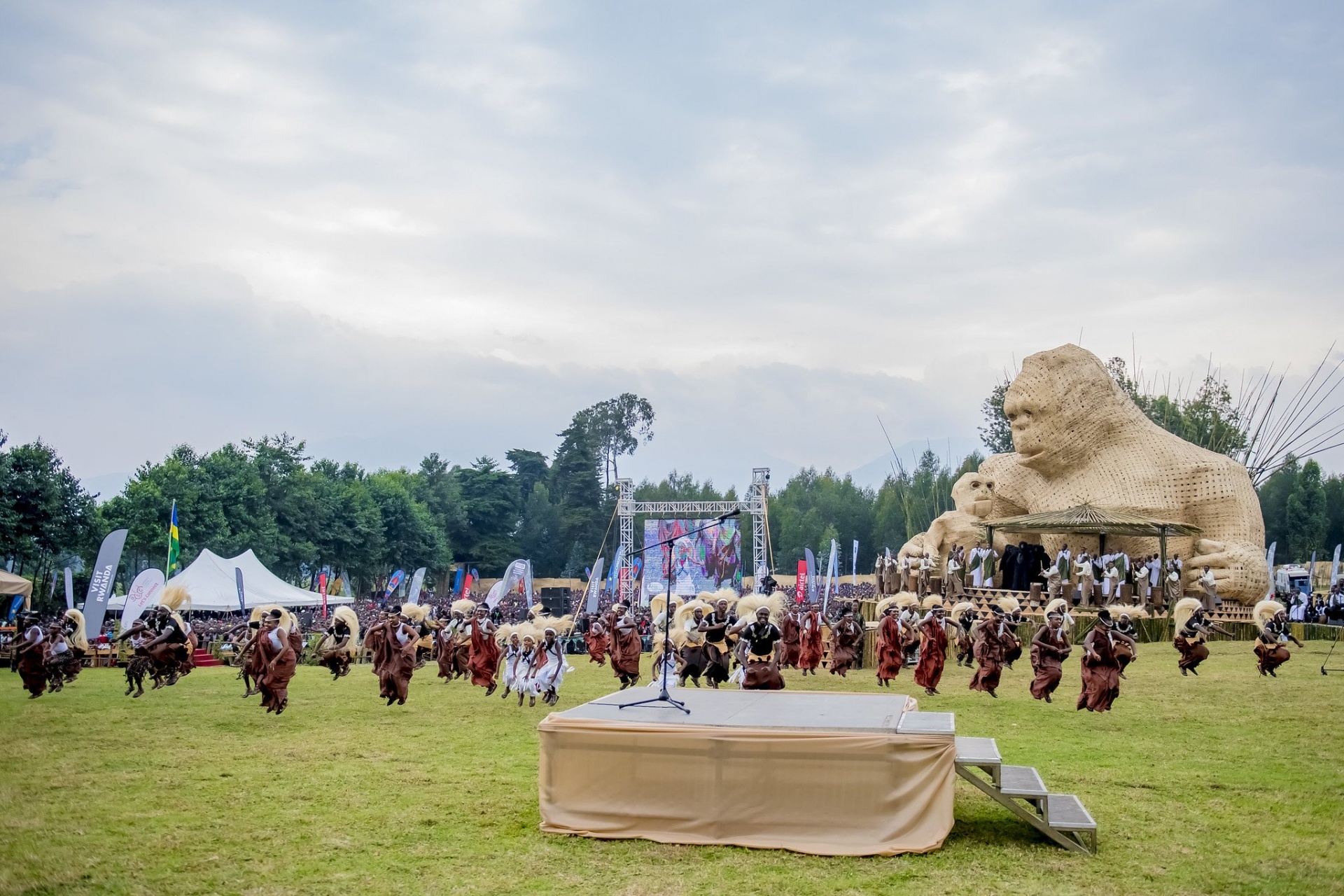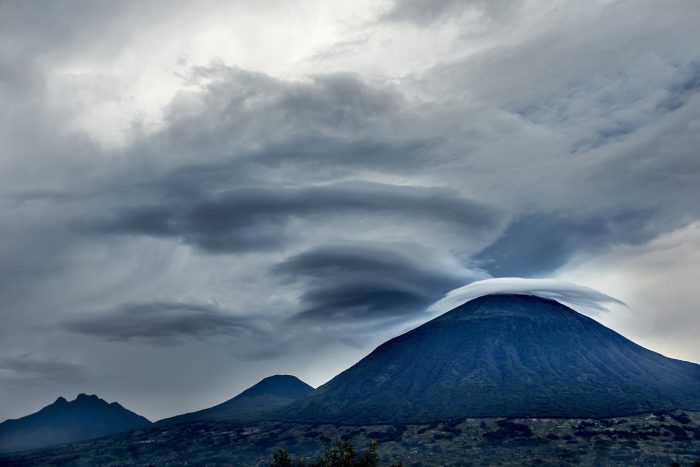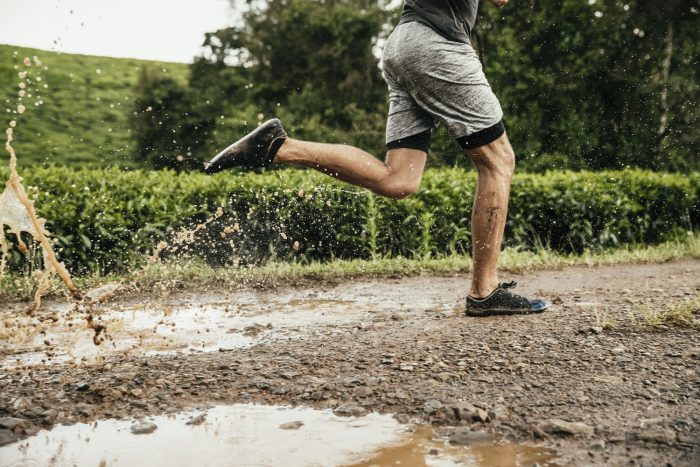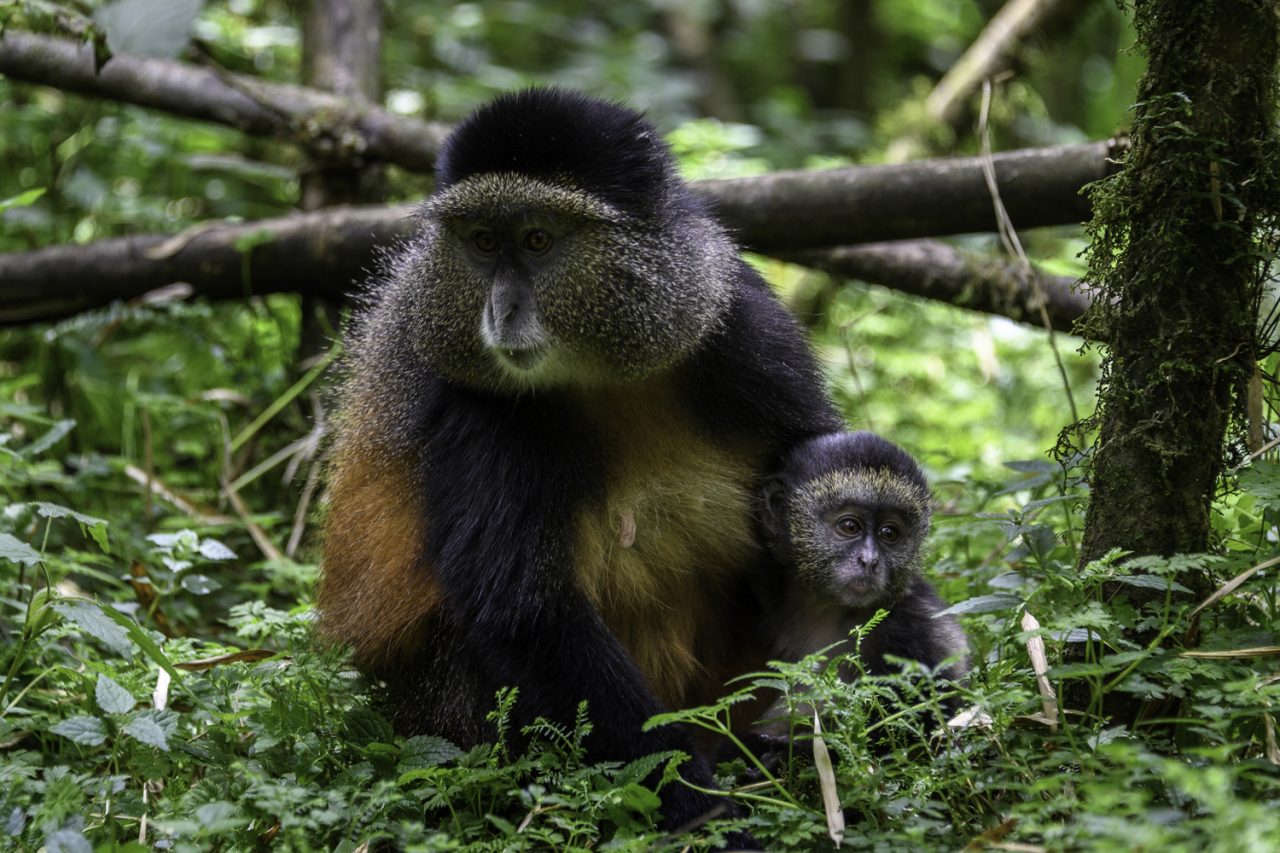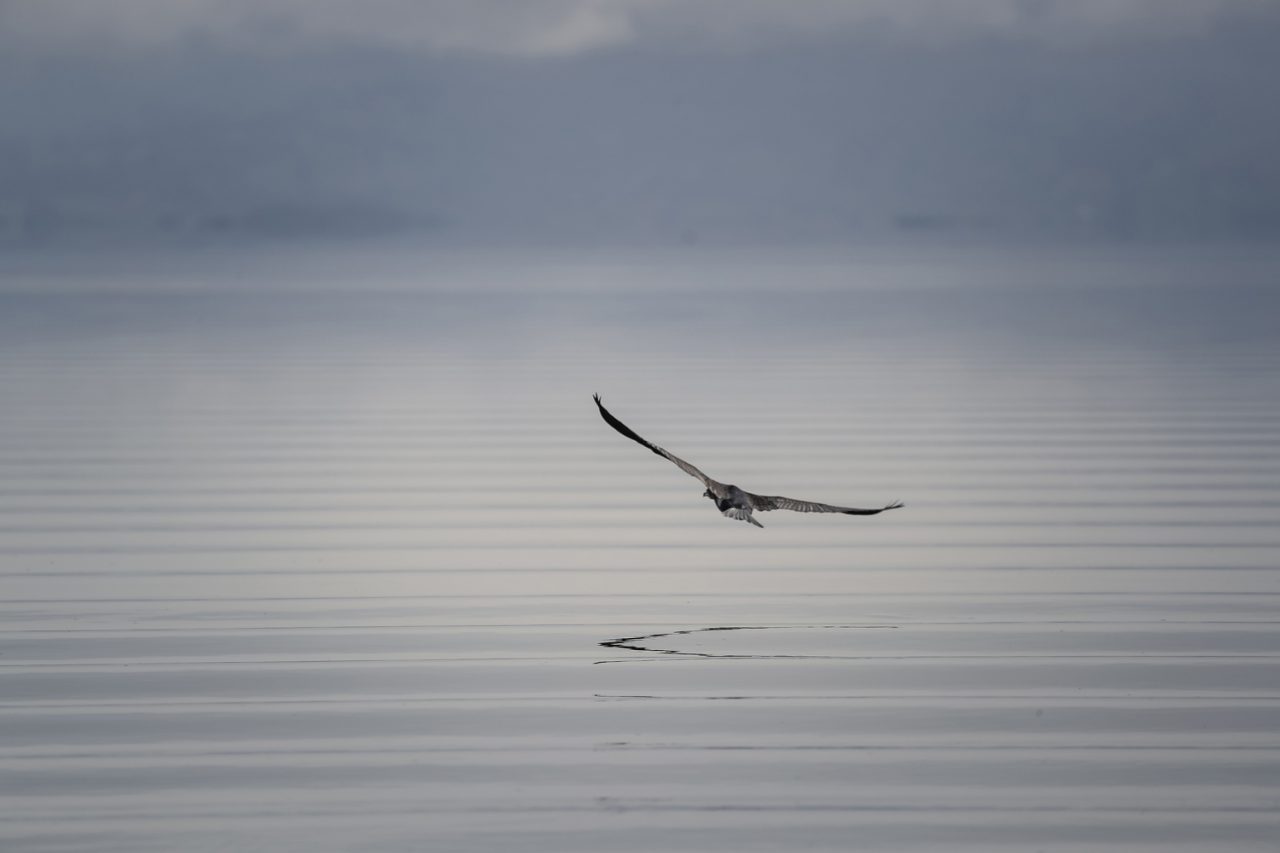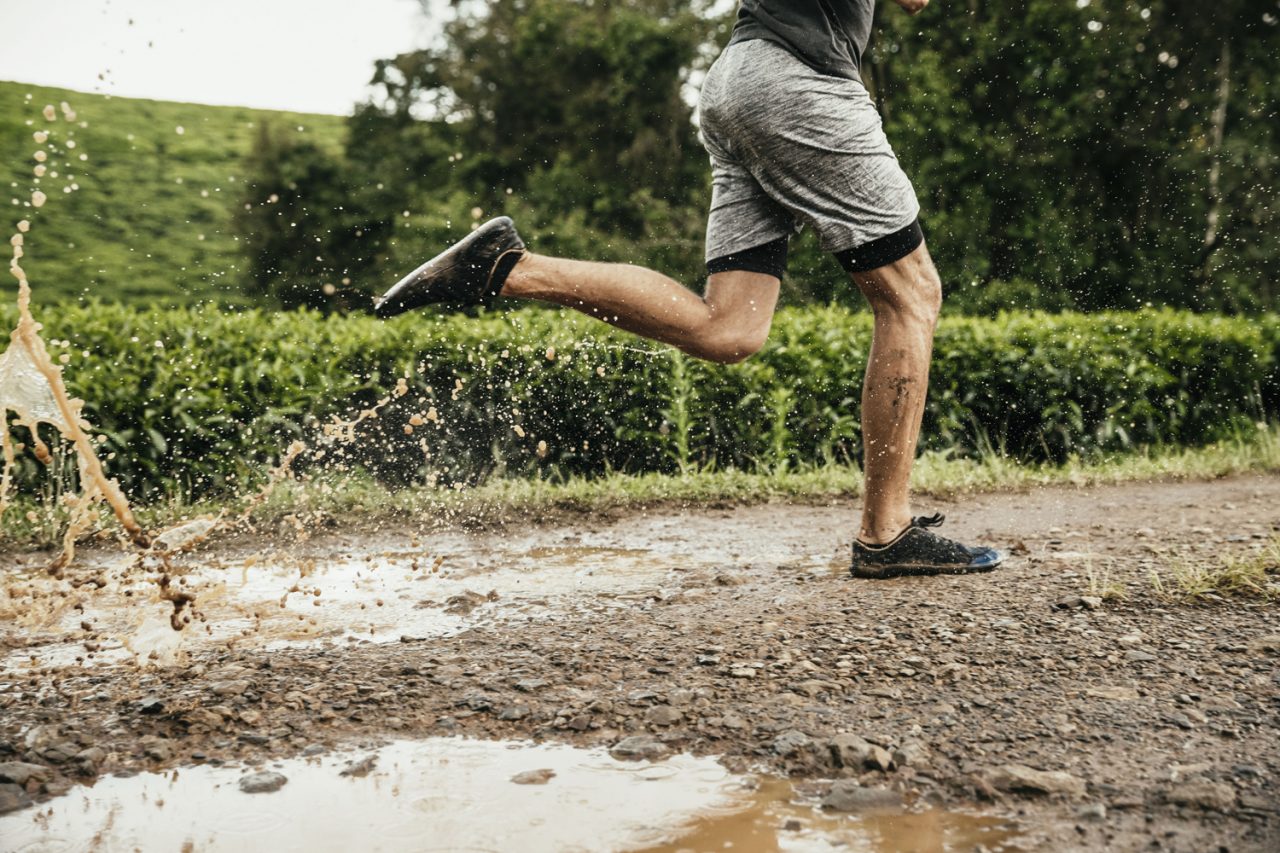Gorilla Tracking
The unique opportunity to see gorillas in their natural habitat is unforgettable, some even say life changing. Encounters with gorillas as they go about their daily lives are carefully managed, with expert trackers and guides leading small groups of tourists up bamboo-covered slopes to spend a precious and awe-inspiring hour just a few feet away from the gentle creatures.
The largest living primate, gorillas are spread across much of the equatorial African rainforest. Broadly speaking, the species is split into lowland gorillas and mountain gorillas.
The volcanic range which spans Rwanda, Uganda and the Democratic Republic of the Congo is home to the endangered mountain gorilla. Tracking gorillas in Rwanda is safe and relatively accessible.
At the latest count, there are approximately 1,000 mountain gorillas in the wild, with 604 in the Virunga Massif. The population is slowly increasing, thanks to concerted efforts between our governments, communities and NGOs.
There are twelve gorilla families living in the Volcanoes National Park, which are fully habituated, with a few others habituated solely for scientific research. The groups, or troops, consist of at least one silverback along with several females and youngsters.
The troops are somewhat fluid in composition, but tend to stick to a preferred area. They are constantly monitored and protected by park rangers, with each group coming into contact with tourists for a strict maximum of one hour per day.
Eight tracking permits are issued per troop per day, meaning the encounter is as intimate and as unobtrusive as possible. With only 96 permits available each day in Rwanda, it is highly recommended to book in advance, either online or via a reputable tour operator.
Visitors gather at the Volcanoes National Park headquarters in Kinigi at 7am, and are allocated a family group on the day according to fitness levels, as well as being briefed on protocols and rules for visiting the gorillas.
The families are known as Susa, Igisha, Karisimbi, Sabyinyo, Amahoro, Agashya, Kwitonda, Umubano, Hirwa, Bwenge, Ugyenda and Muhoza.
Hikes up to their various locations can last anything from 30 minutes to four or more hours, reaching an altitude of between 2,500m and 4,000m. Porters are available to carry backpacks and cameras, as well as to offer a helping hand along the route.
10% of the revenue from the permits is channelled towards local communities, to build schools and health centres, as well as roads. There is a compensation fund for local farmers should any gorillas damage their crops, which helps to ensure peaceful co-existence.
Gorilla tracking also provides employment for many locals, from rangers and trackers to porters, drivers and staff at tourist lodges.
For those interested in tracing the footsteps of Dian Fossey, her tomb is a 30-minute drive from the park headquarters and then two or three hours hike through the forest, to above 3,000m altitude.
The annual Kwita Izina gorilla-naming ceremony is a special time to visit the Volcanoes National Park, with guided tours leading up the main event providing an opportunity to meet park staff and conservationists, attend cultural evenings and a celebration in Musanze.
At the naming ceremony itself, there’s music, dancing, and discussion about Rwanda’s great strides in gorilla conservation, and the great challenges that remain.
Conservation organisations currently working in Rwanda include Dian Fossey Gorilla Fund International, The Gorilla Organisation, International Gorilla Conservation Organisation, Gorilla Doctors and Wildlife Conservation Society.
Book Your Gorilla Tracking Experience
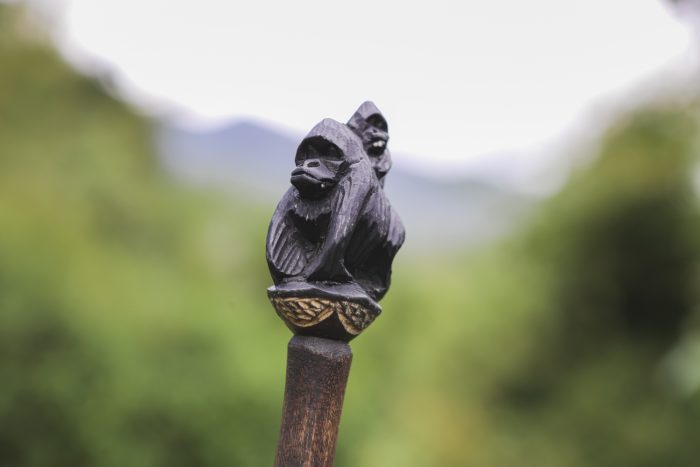
Permits
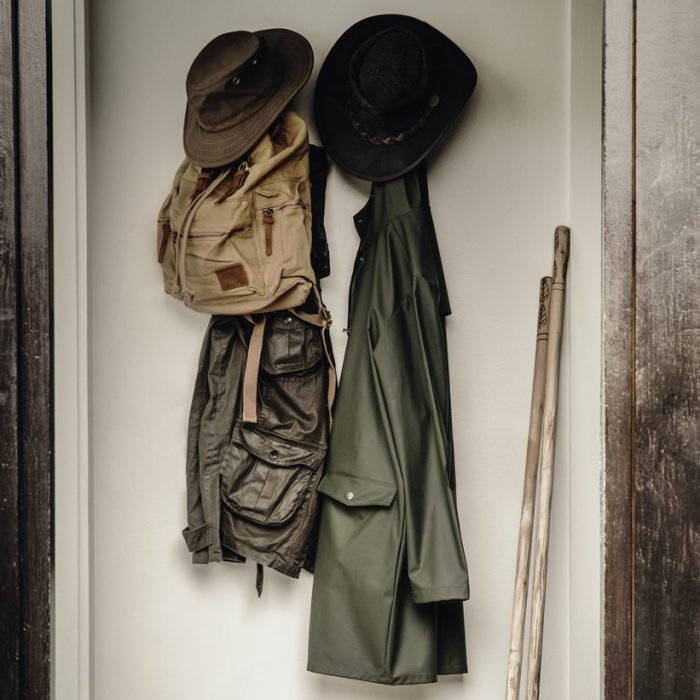
What to Wear
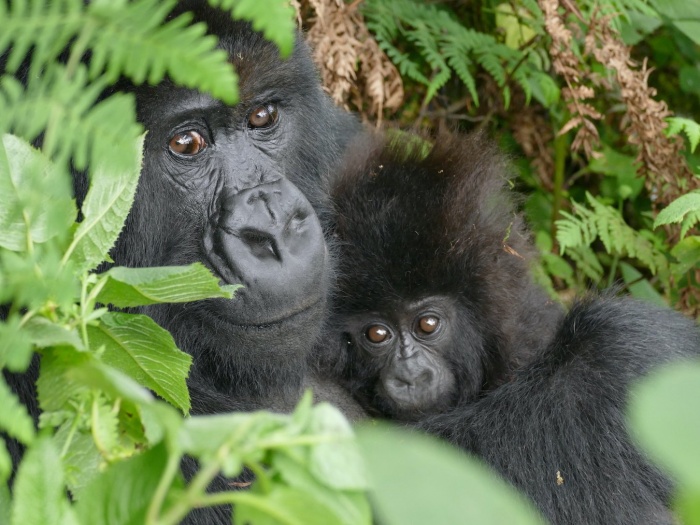
Direct Booking
